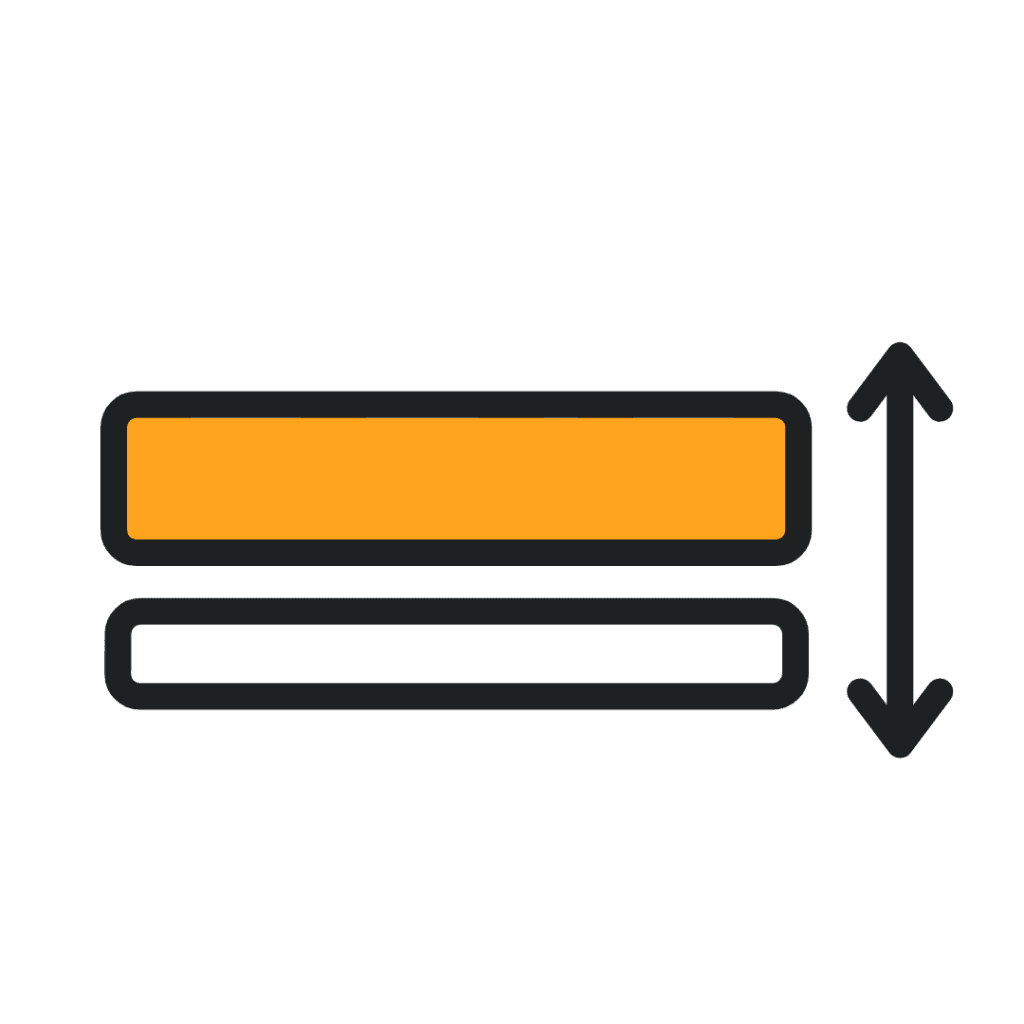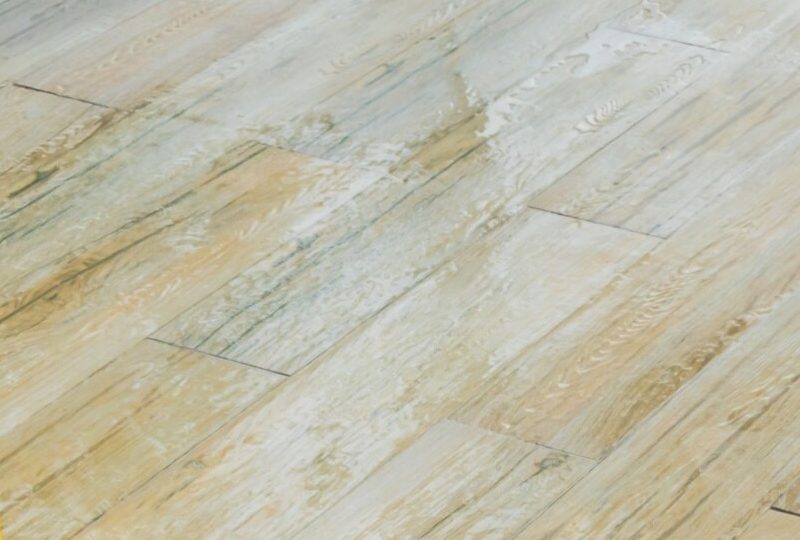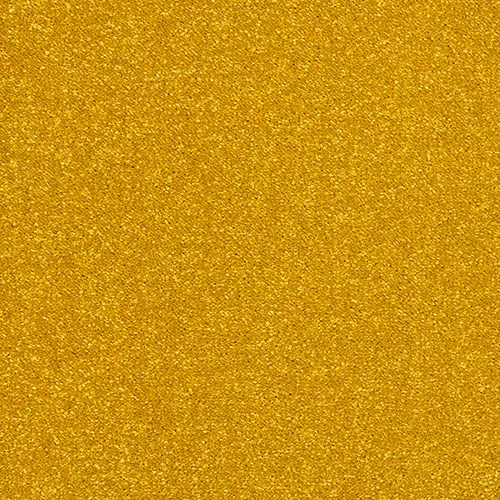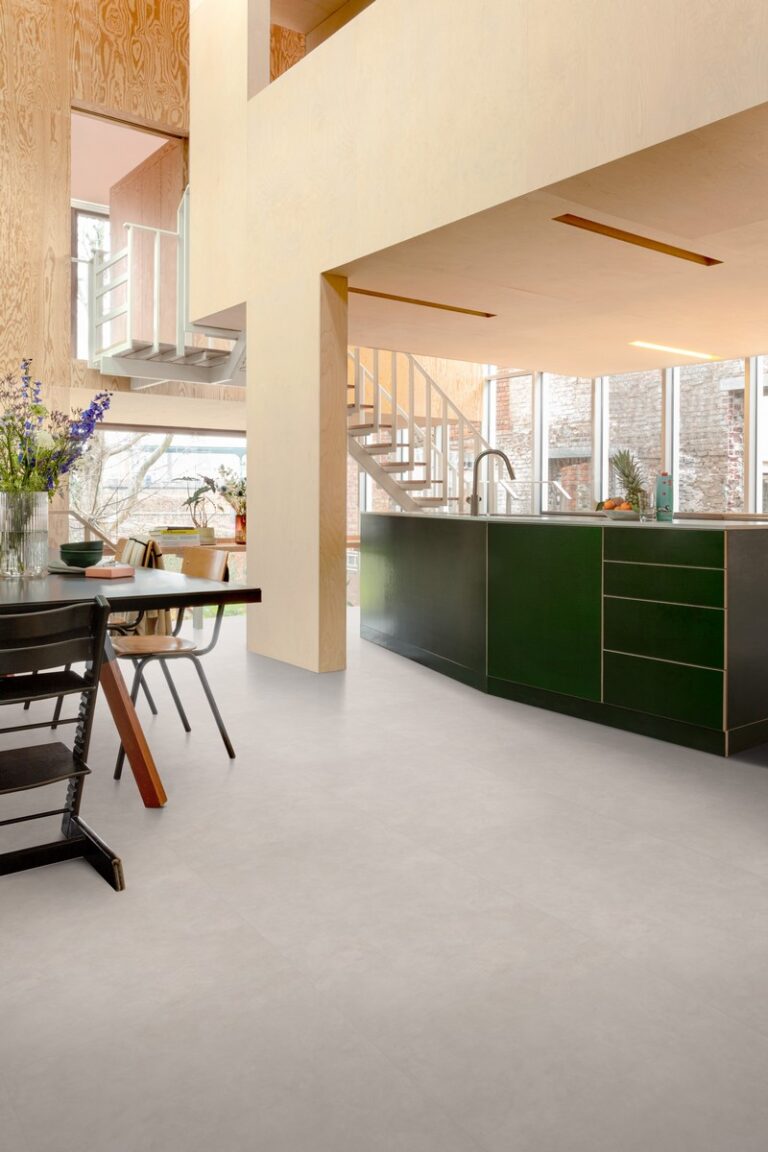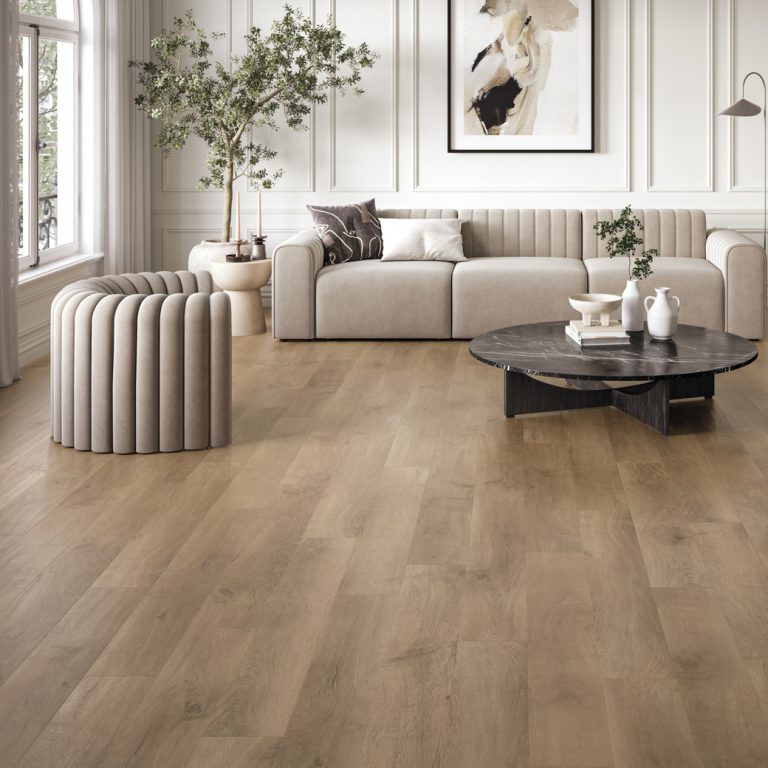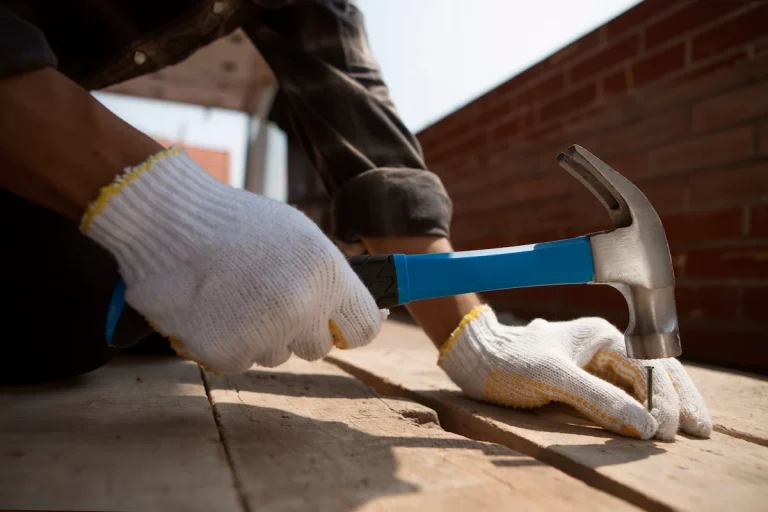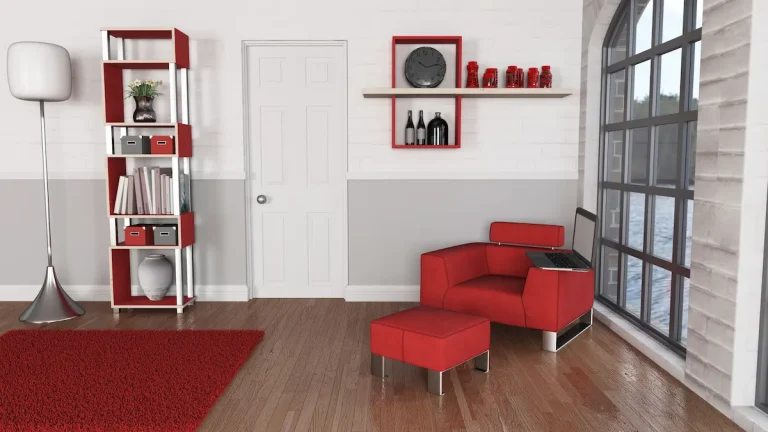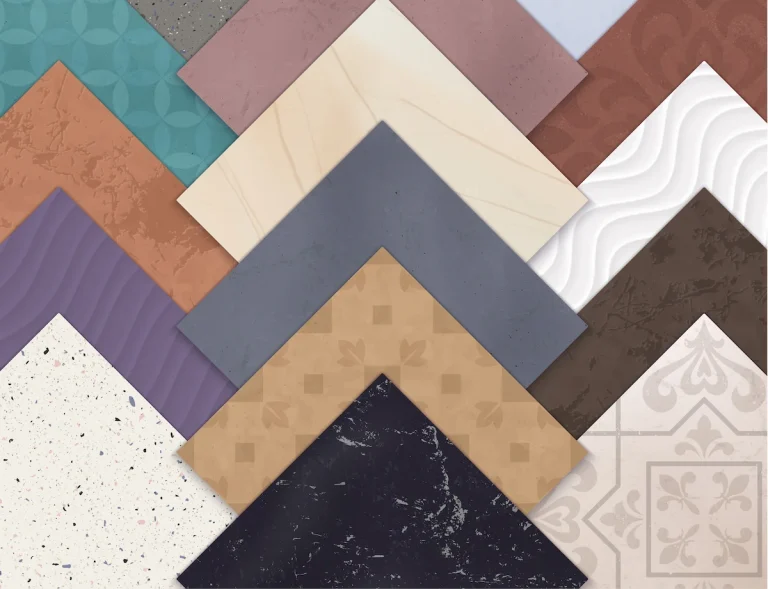Vinyl flooring has become a popular choice for homeowners due to its durability, versatility, and affordability. Among its many variations, waterproof vinyl flooring has gained significant attention for its ability to withstand moisture and water damage. In this comprehensive guide, we will delve into the world of waterproof vinyl flooring, exploring its different types, benefits, limitations, and maintenance requirements.
Whether you are considering a flooring upgrade for your kitchen, bathroom, or any other moisture-prone area in your home, understanding the ins and outs of waterproof vinyl flooring is essential. So, let’s jump right in and uncover everything you need to know about this resilient and water-resistant flooring solution.
What Is Vinyl Flooring?
Vinyl flooring is a versatile and durable flooring option that is available in various types, offering easy installation, minimal maintenance, and a range of advantages and disadvantages.
It is commonly found in tiles, planks and sheets, each with its own unique characteristics and installation methods. Tiles are often used in high-traffic areas, while planks can mimic the look of hardwood flooring. Vinyl sheets are popular for covering large spaces seamlessly. Installation can be done through the glue-down method or the floating floor technique.
Whilst vinyl flooring is water-resistant and easy to clean, it may not be as luxurious as hardwood or natural stone flooring. It is an affordable and practical choice for many homeowners.
Types Of Vinyl Flooring
Vinyl flooring encompasses various types, including luxury vinyl, laminate, solid wood, and engineered wood, available in planks and tiles with a wide array of colours, patterns, designs, textures, finishes, and thickness options.
1. Luxury Vinyl Plank (LVP)
Luxury Vinyl Plank (LVP) is a popular vinyl flooring option known for its realistic wood-like appearance, easy installation, waterproof properties, and scratch-resistant surface.
It offers the look and feel of natural wood while being more affordable and low-maintenance. LVP can be installed as a floating floor, allowing for swift and hassle-free installation. Its waterproof nature makes it a perfect choice for areas prone to moisture, such as kitchens and bathrooms.
The scratch-resistant surface ensures durability, making it an ideal option for high-traffic areas in both residential and commercial settings.
2. Luxury Vinyl Tile (LVT)
Luxury Vinyl Tile (LVT) offers a diverse range of patterns, designs, and styles whilst providing exceptional durability, making it a versatile choice for various interior spaces.
With LVT, homeowners and designers have the freedom to choose from a wide array of realistic wood, stone, and abstract patterns, allowing for endless design options to suit any aesthetic. The durability of LVT makes it suitable for high-traffic areas and its water-resistant nature adds to its versatility by making it ideal for bathrooms, kitchens, and basements. This combination of design options, durability, and versatility makes luxury vinyl tile a popular choice for modern interior design projects.
3. Sheet Vinyl
Sheet vinyl is an affordable and comfortable vinyl flooring option that offers easy installation and a comfortable underfoot feel, making it suitable for diverse residential and commercial settings.
One of the main advantages of sheet vinyl is its straightforward installation process, which can often be done as a DIY project, saving on installation costs. Its affordability makes it an attractive option for budget-conscious homeowners and business owners alike.
The comfort aspect is enhanced by the cushioned feel underfoot, providing a softer surface to walk and stand on compared to other flooring materials. This makes sheet vinyl a popular choice for areas where comfort and ease of maintenance are priorities.
Is Vinyl Flooring Waterproof?
Vinyl flooring is known for its waterproof properties, providing resistance to moisture, spills, and offering protection for the subfloor when combined with appropriate underlay.
This exceptional waterproof characteristic makes vinyl flooring an ideal choice for areas prone to high moisture such as kitchens, bathrooms, and basements. The underlay further enhances its resistance by providing a barrier against any potential moisture originating from the subfloor. Whether it’s accidental spills or everyday moisture, vinyl flooring with proper underlay can effectively guard against water damage, ensuring a durable and long-lasting flooring solution for your home.
What Makes Vinyl Flooring Waterproof
The waterproof nature of vinyl flooring is attributed to its material composition and the installation method employed, ensuring effective protection against water damage.
Vinyl flooring is typically made from a combination of polyvinyl chloride (PVC), plasticisers, and other additives, which contribute to its waterproof properties. The installation process, such as using click-lock or glue-down methods, creates a tight seal between the vinyl planks or tiles, preventing water from seeping through the joints. This combination of materials and installation techniques makes vinyl flooring a popular choice for areas prone to moisture, such as kitchens, bathrooms, and basements.
Material Composition
The material composition of vinyl flooring, including the wear layer and scratch-resistant properties, contributes to its waterproof nature, providing insulation and resistance to moisture.
Vinyl flooring is composed of several layers, with the topmost layer being the wear layer, which provides protection against daily wear and tear, ensuring the floor’s longevity and water resistance. The scratch-resistant properties further enhance its durability, making it resilient to potential damage. These features work in harmony, creating a waterproof barrier that prevents moisture from penetrating the surface, making vinyl flooring an excellent choice for areas prone to spills or high humidity.
Installation Method
The installation method of vinyl flooring, whether floating, glue-down, or click-lock, plays a crucial role in ensuring its waterproof properties and resilience against moisture.
Floating installation creates a barrier against water, allowing for easy removal and replacement of damaged planks, whilst glue-down application offers a more permanent, fully sealed surface. Click-lock systems provide a secure interlocking mechanism, reducing the risk of water seepage between the seams. Each method influences the overall waterproofing capability, making it essential to select the most appropriate installation technique based on the specific needs and environmental conditions of the space.
What Are The Benefits Of Waterproof Vinyl Flooring?
Waterproof vinyl flooring offers numerous benefits, including easy maintenance, durability, and long-lasting performance, making it an ideal choice for various interior spaces.
It is highly resistant to moisture, making it a perfect solution for areas prone to spills and splashes, such as kitchens and bathrooms. Its durable nature withstands heavy foot traffic, pets, and general wear and tear, ensuring a long-lasting investment.
With its authentic wood or stone appearance, waterproof vinyl flooring enhances the aesthetic appeal of any room while requiring minimal upkeep, offering an unbeatable combination of style and practicality.
Simple upkeep
One of the key benefits of waterproof vinyl flooring is its easy maintenance, requiring simple cleaning and care routines, while offering scratch-resistant properties for enhanced durability.
Regular maintenance of waterproof vinyl flooring involves sweeping or hoovering to remove dirt and debris, followed by mopping with a vinyl floor cleaner. Due to its scratch-resistant nature, vinyl flooring can withstand high traffic areas without compromising its longevity. It’s advisable to use furniture pads to prevent scratches and dents. This low-maintenance flooring option is ideal for busy households or commercial spaces, as it retains its aesthetic appeal with minimal effort.
Resistant To Water Damage
Waterproof vinyl flooring is highly resistant to water damage, providing effective protection against spills and moisture, often supported by guarantees and the use of moisture barriers.
This resilience is attributed to the advanced technology used in its construction, which creates a barrier against water penetration. Many waterproof vinyl flooring options come with guarantees that act as a safety net, providing assurance against any unexpected water-related incidents. The incorporation of moisture barriers further enhances the flooring’s ability to withstand water, making it a reliable choice for areas prone to spills and high humidity levels.
Durable And Long-lasting
The durability and long-lasting performance of waterproof vinyl flooring are attributed to its wear layer, scratch-resistant surface, and extended lifespan, ensuring a resilient flooring option.
This type of flooring is designed to withstand high levels of foot traffic, making it a great choice for busy households or commercial spaces. Its wear resistance also protects against scratches and dents, maintaining its appearance for years to come.
With proper maintenance, waterproof vinyl flooring can maintain its quality and aesthetic appeal, offering a cost-effective and durable flooring solution for various environments.
What are the limitations of waterproof vinyl flooring?
Despite its advantages, waterproof vinyl flooring has limitations, including restricted style options, potential slipperiness when wet, and the fact that it may not be completely waterproof in all situations.
These limitations, whilst not negating the benefits, should be carefully considered when choosing vinyl flooring. The style options for waterproof vinyl flooring are more limited compared to other flooring materials, and this can be a drawback for those seeking a specific aesthetic.
Despite being waterproof, the smooth surface of vinyl flooring can become slippery when wet, posing a potential safety hazard. It’s important to note that whilst waterproof vinyl flooring is designed to repel water, it may not be completely impervious to water damage in extreme situations, such as flooding or prolonged exposure to moisture.
Limited Style Options
One limitation of waterproof vinyl flooring is the restricted style options, often limiting the range of available designs, colours, patterns, and textures compared to other flooring types.
Despite these constraints, advancements in technology have resulted in a wider variety of designs, including realistic wood and stone patterns. Some manufacturers also offer textured finishes that mimic the look and feel of natural materials.
Whilst the colour options may not be as extensive as other flooring choices, the available palette still encompasses a diverse range, catering to different interior preferences. Whilst there are limitations, waterproof vinyl flooring continues to evolve to provide more design options for consumers.
Can Be Slippery When Wet
A potential limitation of waterproof vinyl flooring is its susceptibility to becoming slippy when wet, posing safety concerns and the risk of accidents if not handled with caution.
This issue requires careful consideration, particularly in areas prone to moisture or spills, such as kitchens, bathrooms, and entryways. When exposed to water or other liquids, the surface of vinyl flooring can lose its grip, leading to potential slips and falls. It is essential for individuals, especially the elderly and young children, to exercise extra caution when walking on wet vinyl flooring to mitigate the risk of accidents.
Implementing preventive measures, such as using rugs or mats in high-traffic wet areas, can significantly improve safety and minimise potential hazards.
Not Completely Waterproof
Whilst waterproof, there are scenarios where vinyl flooring may not be completely impervious to water, especially without proper installation and underlayment, highlighting the need for cautious usage in specific conditions.
This includes instances where the edges and seams of the vinyl flooring are not sealed correctly during installation, leaving them vulnerable to water seepage. The role of underlayment cannot be overlooked as it provides an added layer of protection against moisture. It’s essential to choose a suitable underlayment that complements the waterproof qualities of the vinyl flooring. You can read the complete guide on what to put under vinyl flooring in our last article : What To Put Under Vinyl Flooring? Choose Based On The Room!
Cautious usage in areas prone to constant water exposure such as bathrooms and kitchens is crucial to maintain the integrity of the flooring. By paying attention to these factors, one can ensure the longevity and effectiveness of waterproof vinyl flooring.
How To Ensure Waterproof Vinyl Flooring?
Ensuring the waterproof properties of vinyl flooring involves proper installation, regular maintenance and care routines, and the use of moisture barriers to enhance its resilience against water-related challenges.
Proper installation includes ensuring a level subfloor, using high-quality adhesives, and sealing seams effectively. Regular maintenance involves promptly wiping up spills, keeping the floor clean, and avoiding excessive water exposure. Incorporating moisture barriers during installation or as an underlay can provide an extra layer of protection, preventing moisture from seeping through the floor. These steps not only safeguard the vinyl flooring from water damage but also make it more durable, long-lasting, and visually appealing in various spaces, such as kitchens, bathrooms, and basements.
Proper Installation
Achieving waterproof vinyl flooring necessitates proper installation, involving considerations for the subfloor, underlay, and the option of professional installation to ensure optimal performance.
Inadequate subfloor preparation can result in problems like unevenness, moisture issues, or an unstable base for the vinyl planks. Selecting the appropriate underlay is crucial as it provides support and cushioning while also helping to reduce noise.
Professional installation not only saves time and effort but also ensures that the flooring is expertly laid, minimising the risk of future issues such as buckling or gaps. Professional installers can also help with accurate measurements and proper acclimatisation of the vinyl flooring, leading to a durable and visually pleasing result.
Regular Maintenance And Care
Regular maintenance and care practices, including gentle cleaning, prompt handling of spills, and leveraging the scratch-resistant features, play a critical role in preserving the waterproof properties of vinyl flooring.
These maintenance efforts not only enhance the longevity of vinyl flooring but also contribute to its aesthetic appeal. By regularly sweeping or vacuuming the floor to remove dirt and debris, and following up with a damp mop using approved vinyl flooring cleaners, you can keep the surface free from grime and maintain its waterproof seal. Promptly attending to spills and avoiding harsh cleaning agents are pivotal in preventing damage to the flooring.
The scratch-resistant nature of vinyl flooring helps in preserving its waterproof attributes, making it a resilient and durable choice for any space.
Using A Moisture Barrier
The use of a moisture barrier serves as an additional safeguard for waterproof vinyl flooring, offering protection against spills and moisture-related challenges when incorporated as part of the underlay during installation.
This added layer acts as a shield, preventing any liquid from seeping through the flooring and causing damage to the subfloor. By creating a barrier, it helps maintain the integrity of the flooring material, prolonging its lifespan and reducing the risk of mould and mildew growth. A moisture barrier provides peace of mind for homeowners, knowing that their flooring is well-protected against common moisture issues, making it an essential component for maintaining a long-lasting and visually appealing floor.
Now that you’ve explored the ins and outs of vinyl flooring, are you ready to transform your space? Don’t settle for anything less than the best – let TEKA Flooring be your guide to vinyl flooring bliss. We offer a carefully curated selection of high-quality vinyl planks and tiles boasting stunning aesthetics and exceptional durability. We provide premium services, from expert advice to seamless installation, ensuring your vinyl flooring journey is smooth and stress-free.
Dive into the world of vinyl flooring with TEKA Flooring and experience the difference. Visit our store today and let our friendly team help you find the perfect vinyl flooring solution for your home. Step onto a future of comfort, style, and effortless living – step onto TEKA flooring, the premium flooring store in Peterborough.
Read also :



















